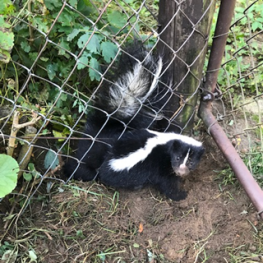Wild Animals

Our Animal Services Officers:
- Respond to calls about injured wildlife and animal welfare concerns
- Release animals that are trapped
- Take most ill or injured wildlife to a licensed rehabber
Keep Wildlife Wild
It's important to keep wildlife wild. Stress from contact with a human can cause serious health problems. Wild animals can carry parasites and diseases that can make humans and other animals sick. For more information on wildlife and health, visit CDC's wildlife page.
How to Tell if a Wild Animal is Orphaned
If you find a young animal in the wild, it may not always be an orphan. A young animal's best chance for survival is with its mother.
- If you see an injured, ill, or "orphaned" wild animal, leave it alone.
- Check the Wisconsin Department of Natural Resources website to decide if the animal you have found is orphaned.
- If you decide that the animal is orphaned or injured, call the Dane County Humane Society's Wildlife Center at (608) 838-0413, ext. 151.
Concerns with wild animals
Wildlife can sometimes cause trouble. Check the Wisconsin Department of Natural Resources website to learn what you can do to deal with nuisance wildlife.
Removing Nuisance Wild Animals
For help with removing a wild animal from your property, call a private pest control service. Pest control companies are licensed to remove or relocate healthy wildlife and can help you determine how to keep the problem from reoccurring.


